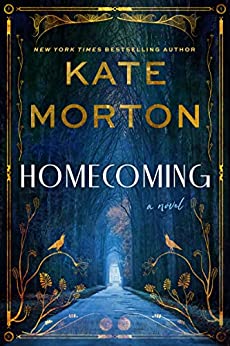More on this book
Community
Kindle Notes & Highlights
A sage friend once told her that people didn’t change as they aged, they merely became older and sadder.
“Doesn’t matter if your body’s grounded,” she’d said, in that firm, no-nonsense way of hers. “There’s other ways to travel.” She’d started with a children’s book
“Someone I used to know a long time ago told me once that fear is the doorway to opportunity. And I can assure you, my love, that every good thing that’s happened to me since has come through acting despite my fears.”
Jess supposed, that after being responsible for another human being for so long, to be released was not to be set free so much as to be cut adrift.
“We can’t allow ourselves to be the victims of our childhoods,” she said. “One can’t blame one’s parents—or indeed one’s children—for everything. Most people do the best they can and sometimes, sadly, it’s not enough.”
“There’s no point looking backward,” she’d say. “Just make a choice and then trust yourself to have chosen correctly.”
It was a worry: ability to self-critique was one thing, but the analysis-paralysis of overthinking was quite another.
It was a familiar, unsettling feeling of adults keeping secrets while they pretended everything was fine.
Bad things happen to the best of people, and we cannot let them overwhelm us. Life doesn’t always work out the way we plan, but it does work out in the end.”
“Stress can make even the most loving mother lose control.”
“My grandmother was a girl when they planted those trees. None of the adults there that day lived to see them grow to full height. People were wiser back then, and less selfish. They understood that they were part of a line, not the beginning, middle, and end of it.”
This was the magic of books, the curious alchemy that allowed a human mind to turn black ink on white pages into a whole other world.
It was a fact of human existence that no two people could ever see a set of facts in precisely the same way; furthermore, that each would swear—and probably believe—they spoke “the truth.”
Polly liked the way old things looked. She found their small signs of damage reassuring: the scratches, the imprints from long-ago pens, the flaking paint. They understood that everybody had their bruised edges and private pasts.
For all that “home” was considered a word of warmth and comfort, policemen knew better. Home is where the heart is, and the heart could be a dark and damaged place.
she realized that the creeping, gnawing feeling that had wrapped itself around her like a pair of dark, damp wings was loneliness. A deep and profound loneliness. Polly wondered why she should feel such a thing. She and Nora seldom spoke; they rarely saw one another anymore. Her mother’s death made no demonstrable difference to her daily life, yet something inside her had plunged since receiving the news. She had come to the conclusion that being lonely wasn’t the same thing as being alone. Polly had been alone for decades. She didn’t mind it. Even as a young girl, she hadn’t been the sort to
...more
“We all know someone like that. They’re less careful, less capable, and yet somehow the truly terrible things never happen to them. People want to help; they attract kindness—they’re looked after by guardian angels wherever they go.”
There was a truth observed by all good preachers, leaders, and salesmen: tell a good story, tell it in simple language, tell it often. That’s how beliefs and memories were formed. It was how people defined themselves, in a reliance upon the stories about themselves that they were told by others.
Home, she’d realized, wasn’t a place or a time or a person, though it could be any and all of those things: home was a feeling, a sense of being complete. The opposite of “home” wasn’t “away,” it was “lonely.” When someone said, “I want to go home,” what they really meant was that they didn’t want to feel lonely anymore.
This book is in part about stories and their tellers.
Homecoming is also about books and booklovers,


